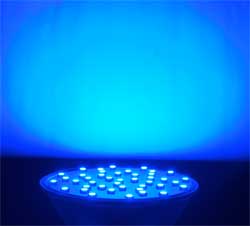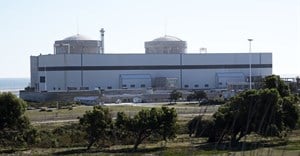
Subscribe & Follow
Jobs
- Stock Controller Cape Town
- Night Shift Production Manager Cape Town
- Factory Manager - Food Manufacturing (Soya Processing) Lusaka
- Personal Assistant Randburg
- General Manager Operations (Zambia) Lusaka
LED lamp wins Nobel Physics prize for Japanese trio

The trio are Isamu Akasaki, Hiroshi Amano and Shuji Nakamura, a researcher who is currently a US national based in California.
"This year's Nobel Laureates are rewarded for having invented a new energy-efficient and environment-friendly light source - the blue light-emitting diode (LED)," the jury said.
"Their inventions were revolutionary," it said. "Incandescent light bulbs lit the 20th century. The 21st century will be lit by LED lamps."
According to the jury the three researchers produced bright blue beams from semiconductors in the early 1990s, triggering a transformation in lighting technology.
Red and green diodes had been around for a long time - but without blue light, white lamps were impossible. Devising the blue LED was a challenge that endured for three decades.
"They succeeded where everyone else had failed," the jury said, adding that with the advent of LED lamps more efficient lighting alternatives are available.
LED lamps emit a bright white light, last for tens of thousands of hours and use just a fraction of energy compared with the incandescent light bulb pioneered by Thomas Edison in the 19th century.
LED lamps consume small amounts of electricity
The most advanced LED lamps now consume nearly 20 times less electricity than incandescent light bulbs and their performance is improving constantly.
Around a quarter of world electricity consumption is used for lighting, so governments in many countries are promoting a switch to LEDs to save heat-trapping emissions from fossil fuels, which are burned to generate power.
And because they have very low electricity needs, LED lights can be connected to cheap, local solar power - a benefit for the more than 1.5bn people around the world who lack access to an electricity grid.
"The invention of the blue LED is just 20 years old, but it has already contributed to create white light in an entirely new manner and that benefits us all," the jury said.
Unusually for a recipient of the Nobel Prize, Nakamura was employed at Nichia Chemicals, a small Japanese company, when he did the research that was rewarded this year in Stockholm.
"It's unbelievable!" Nakamura said when phoned by the Nobel Committee.
Akasaki worked together with Amano at the University of Nagoya, when conducting their part of the path-breaking research. Akasaki, born in 1929, is currently a Professor at Meijo University in Nagoya, while Amano, born in 1960, is a Professor at Nagoya University.
Nakamura, born in 1954 in Japan, is now a US citizen and a Professor at University of California, Santa Barbara.
The winners will share the prize of eight million Swedish kronor.
Source: AFP via I-Net Bridge
Source: I-Net Bridge

For more than two decades, I-Net Bridge has been one of South Africa’s preferred electronic providers of innovative solutions, data of the highest calibre, reliable platforms and excellent supporting systems. Our products include workstations, web applications and data feeds packaged with in-depth news and powerful analytical tools empowering clients to make meaningful decisions.
We pride ourselves on our wide variety of in-house skills, encompassing multiple platforms and applications. These skills enable us to not only function as a first class facility, but also design, implement and support all our client needs at a level that confirms I-Net Bridge a leader in its field.
Go to: http://www.inet.co.za















